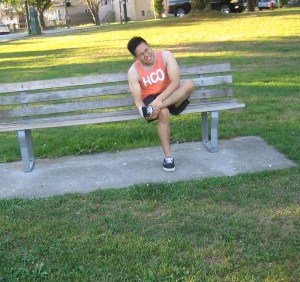Normal wound healing usually takes about 3 weeks but some wounds can take months or even years to heal. The local factors such as the condition of the wound, trauma, infection and edema can affect the healing as well as systemic factors. The systemic factors affect the whole body which includes the general health, age and nutritional status.
Infection and contamination
Wound infection is considered one of the most common reasons for delayed wound healing. Once a wound is contaminated or becomes infected, the immune system uses up energy to fight off the bacteria, thus leaving behind little for the healing. It is important to note that bacteria produce toxins that also disrupt with the healing process and cause death of the cells. When it comes to bite wounds, it is likely to be heavily contaminated.
Impaired circulation and oxygenation
Blood delivers oxygen and nutrients to the healing area and eliminates bacteria, debris and toxins. Certain conditions that minimize the flow of blood and oxygenation are the typical causes of poor wound healing. Diabetes, advanced age, peripheral vascular disease and high blood pressure can affect the circulation and disrupt with the healing.

Anemia and chronic lung disease can impair oxygenation while obesity slows down the wound healing since fatty tissues have fewer blood vessels. In addition, tobacco also disrupts wound healing since it reduces the circulation.
Condition of the wound
The condition of the wound affects its ability to properly heal. Excess pressure or repeated trauma to the wound delays the healing process. It is important to note that dehydration causes the cells to dry up and crust over. On the other hand, over hydration due to exposure to urine or feces can cause the skin to macerate since it is too moist and erodes. Dead or necrotic tissue should be removed or the wound will not properly heal.
Aging
The elderly heal more slowly than children and healthy adults. Remember that their skin is fragile and the risk for infection is higher due to the slower inflammatory response, slower endocrine system function and reduced antibody production. Additionally, they are more likely to end up with chronic diseases such as diabetes and heart diseases that impairs with oxygenation and circulation.
Medications
Medications that disrupt with the inflammatory response such as corticosteroids can delay the healing process. Chemotherapy stops the cells from proliferating, thus disrupting wound healing. Radiation therapy also depresses the bone marrow function, thus increasing the risk for infection and prolonged antibiotic therapy increases the risk for a secondary infection.
Poor nutrition
The body requires more protein and calories, vitamins A and C and zinc for proper wound healing, thus a balanced diet is vital. The food plans must include at least 2-3 servings of protein with at least one serving of foods packed in vitamin A such as orange or green fruits and vegetables and at least one serving of vitamin C-rich foods such as strawberries, citrus fruits, peppers, spinach, tomatoes or potatoes. Zinc that is present in fortified cereals, seafood and red meat are also beneficial for healing.
